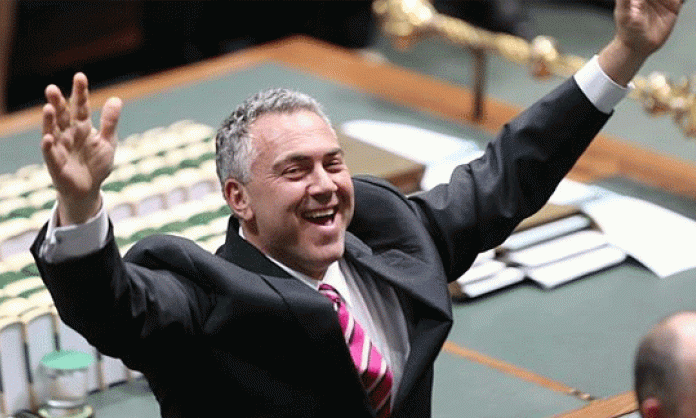Since treasurer Joe Hockey handed down his budget on 12 May, the overwhelming message from the media has been clear: this budget is a big retreat from the barrage of nasties contained in last year’s. Whether it’s references to “Tony’s tradies” or “cash splashes”, the media are pretending that there’s something for everyone this time around.
The Financial Review’s Laura Tingle called it “the cuddly kitten of budgets compared with last year’s Rottweiler”. Ellen Whinnett, writing in Melbourne’s Herald Sun, called it “a soothing manifesto”. Mark Kenny in the Age said that it was “largely devoid of the harsh cuts and the losers … created in 2014”.
The Australian Council of Social Services (ACOSS) has blown a hole in this media narrative. Its budget report, published on 23 May, shows that not only have most of the cuts from the 2014 budget been maintained, but others have been added. The welfare lobby group has identified a combined total of $15 billion in cuts over the next four years that will disproportionately hurt workers and the poor.
These include $6 billion cut from family payments, including cuts to Family Tax Benefit B and the freezing of family payment rates for two years; $4.5 billion from the combined effect of cuts linked to the Medicare benefits schedule and pharmaceutical benefits scheme, social security changes and state concessions; $1.8 billion, increasing to a massive combined $80 billion over 10 years, for hospitals and education; and $674 million from affordable housing and homelessness programs, resulting in the loss of 12,000 affordable dwellings.
ACOSS also notes that $1 billion has been cut from “vital community services for people in greatest need … such as those experiencing financial crisis or family breakdown, children at risk, vulnerable young people, new mothers and babies, people facing eviction and homelessness, carers in need of respite, those struggling with drug and alcohol addiction, and those with mental health problems, including $500 million from Aboriginal and Torres Strait Islander services and programs”.
The cut to Family Tax Benefit B for single income families with children over 6 will be $49 per week. ACOSS notes, “This cut will have dire consequences particularly when taken together with the freezing of family payments indexation, given that a third of sole parent families are already living in poverty”.
Set alongside these cuts, ACOSS argues that the middle class and capitalists have got away unscathed. The ruinously expensive tax concessions on their superannuation contributions, investment properties and share portfolios have all been quarantined.
This means that “the most disadvantaged and struggling individuals and families in our community are being asked to shoulder the responsibility for restoring the budget”.
Far from being a “cuddly kitten”, the budget is vicious. That this has been hidden from the public, giving Abbott an entirely unwarranted polling boost, is entirely due to the budget snow job by Australia’s corporate media.









